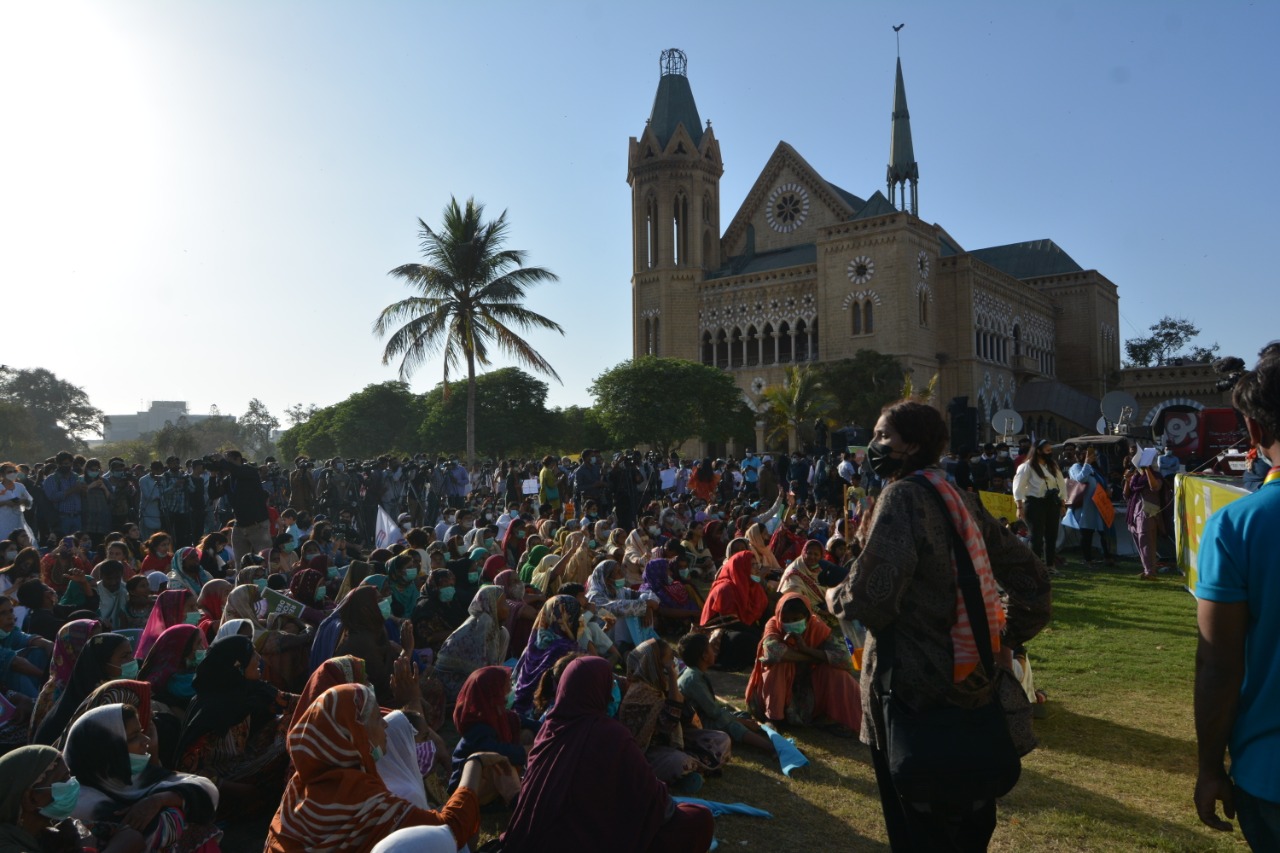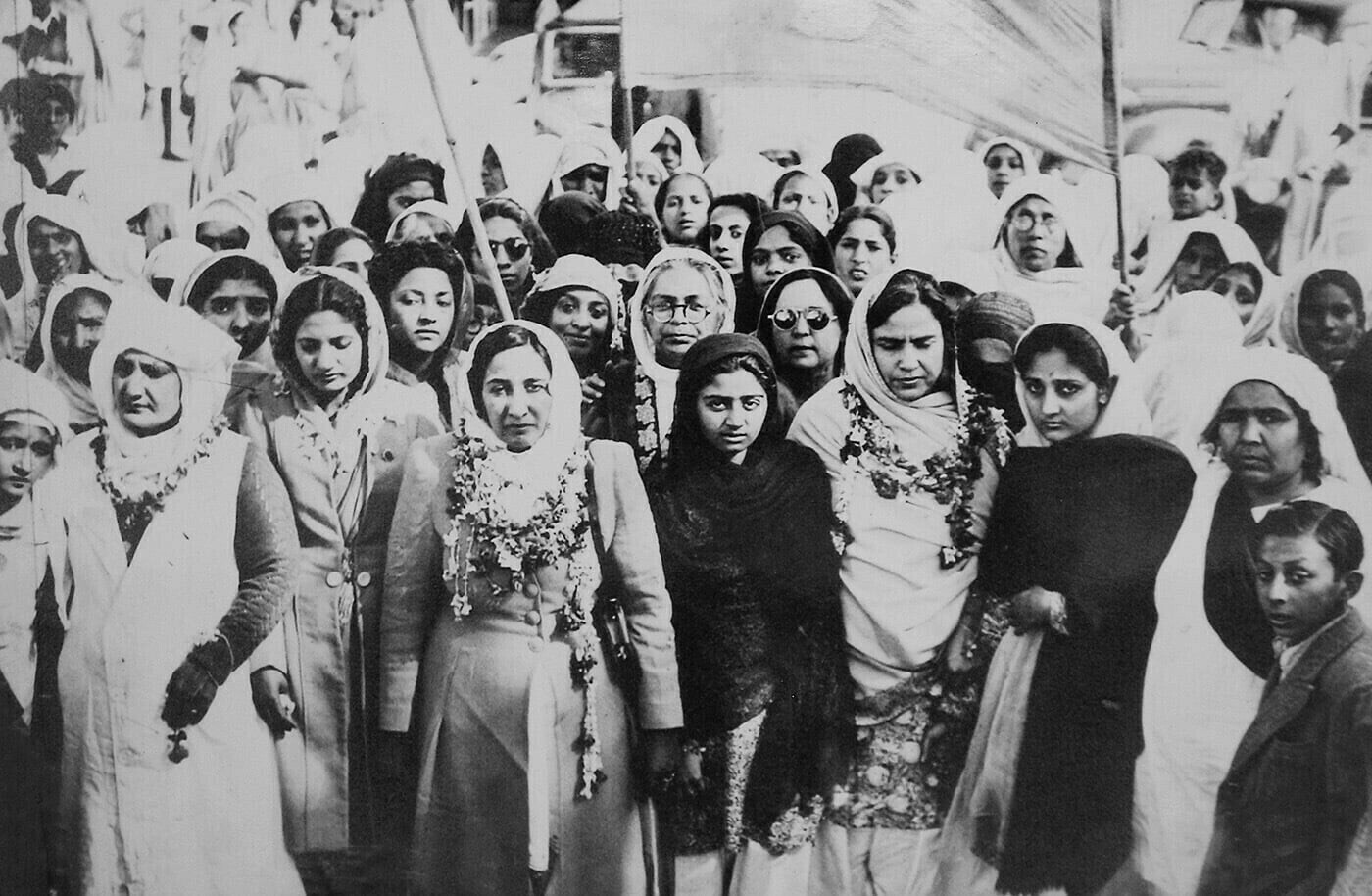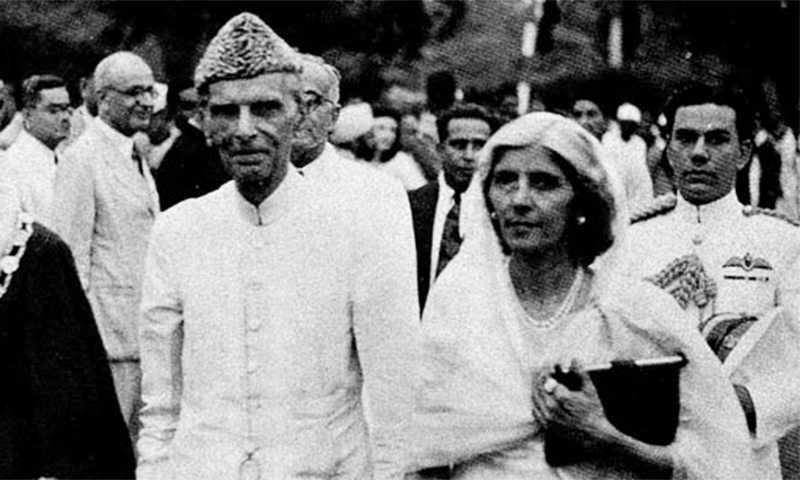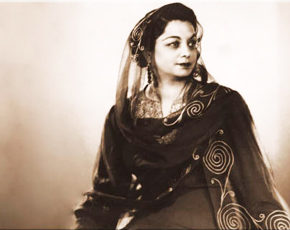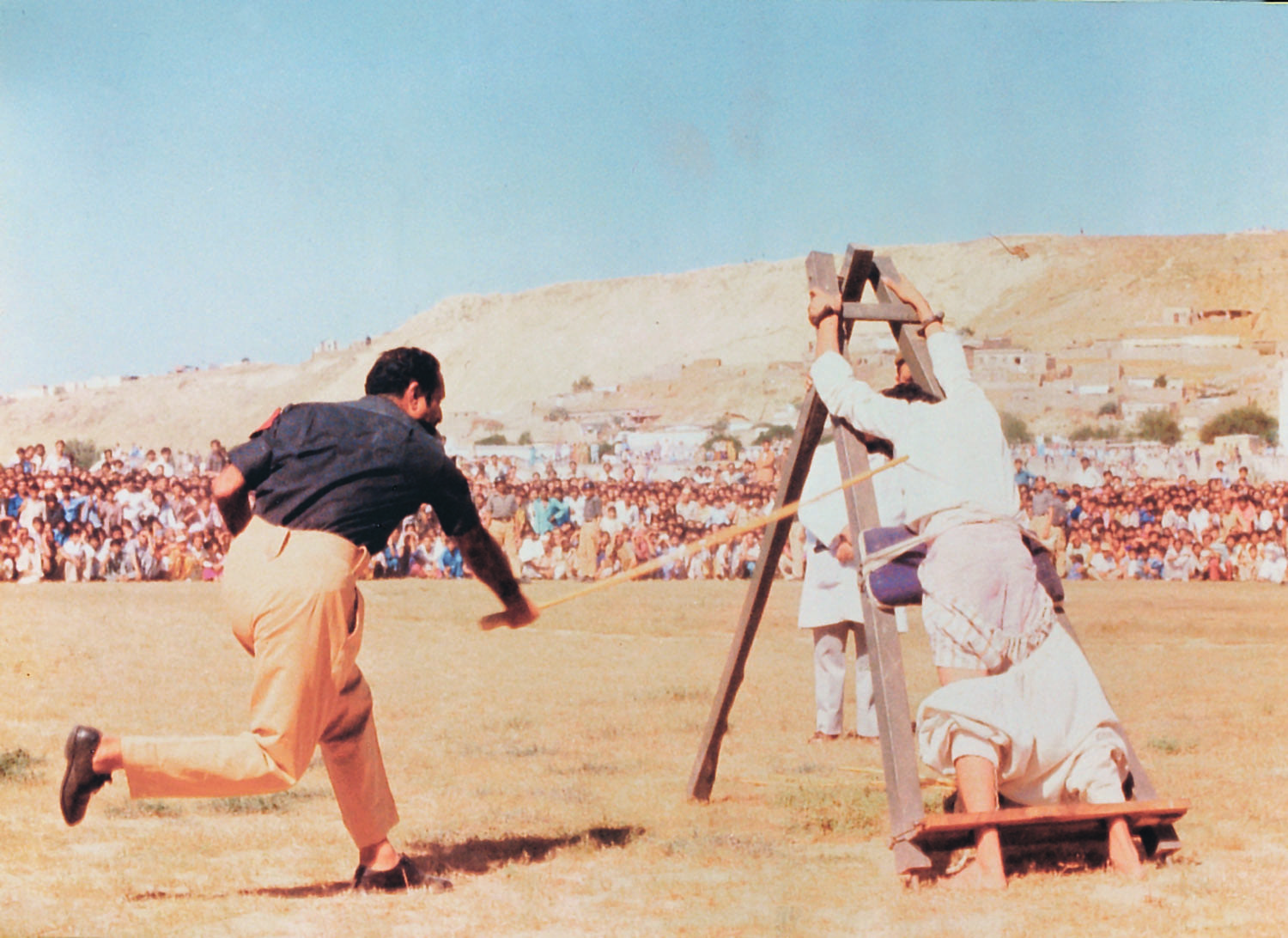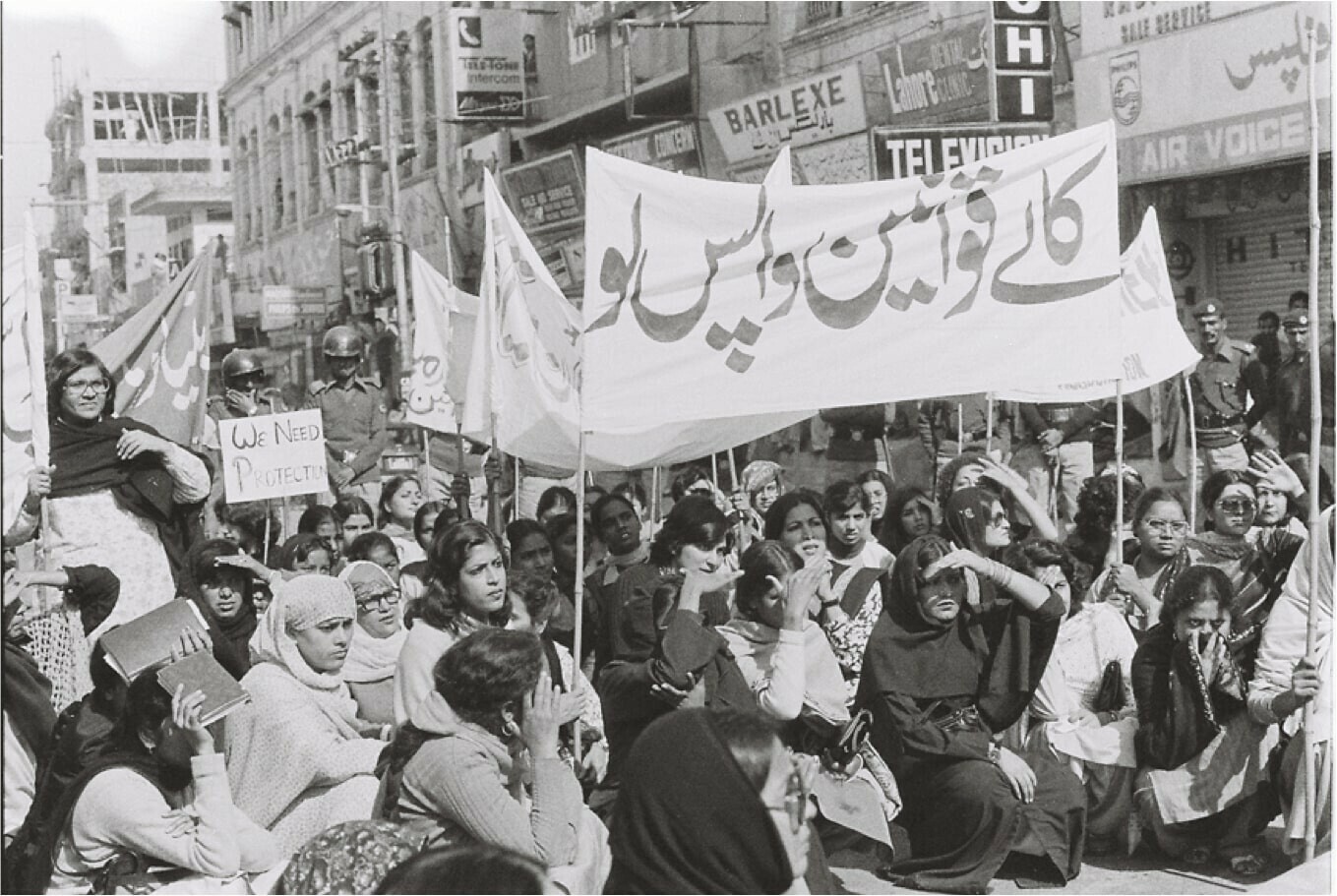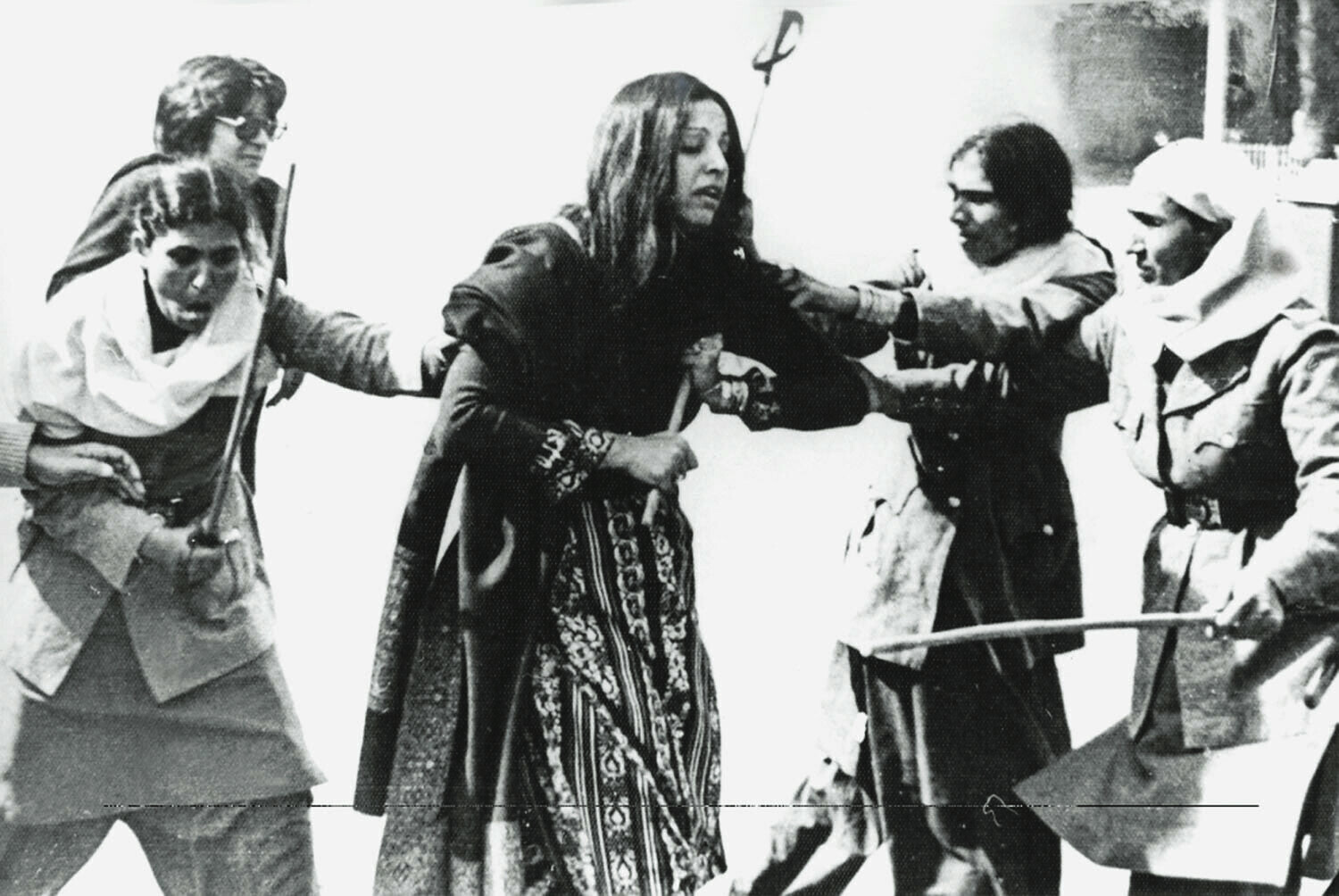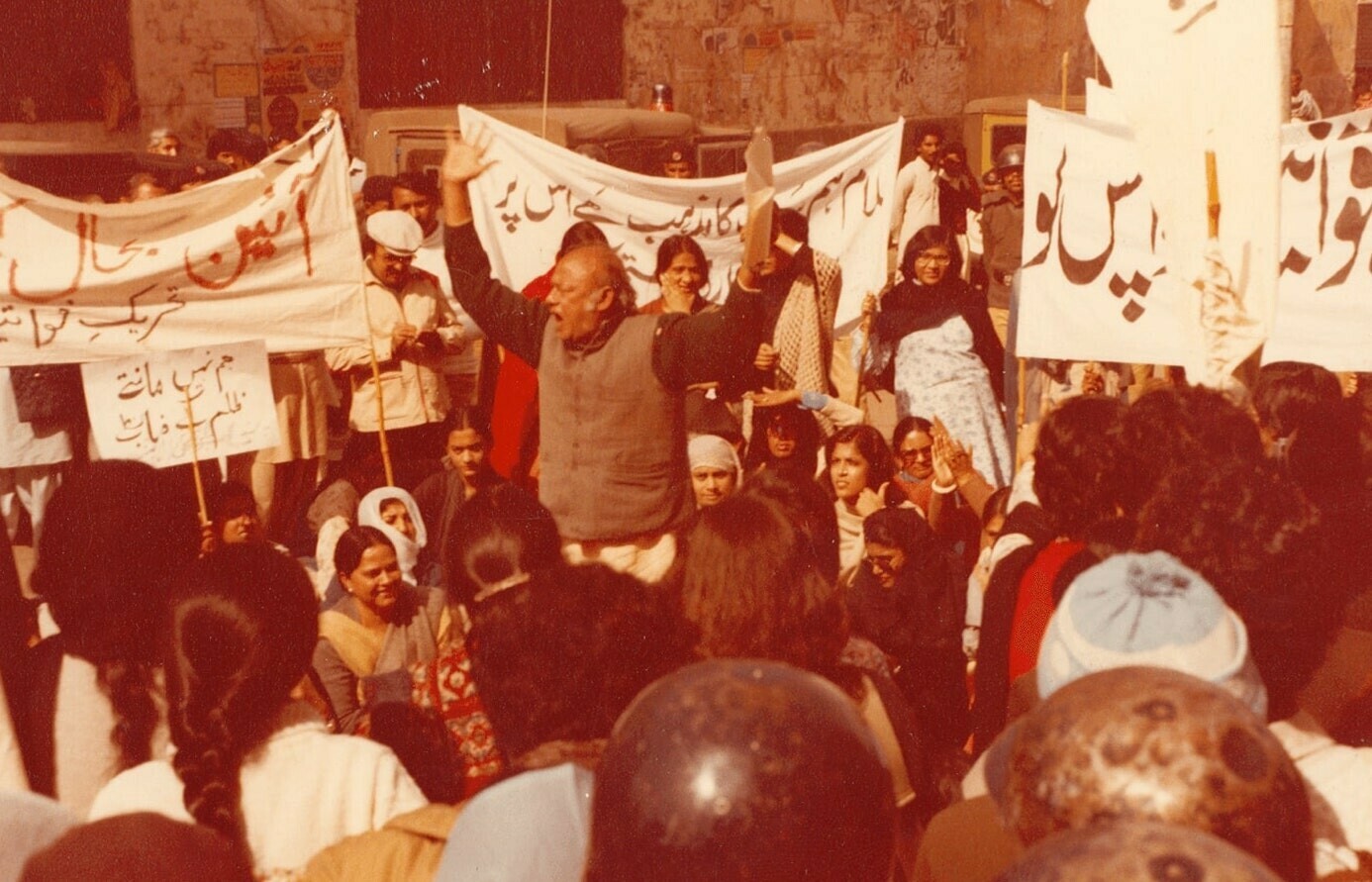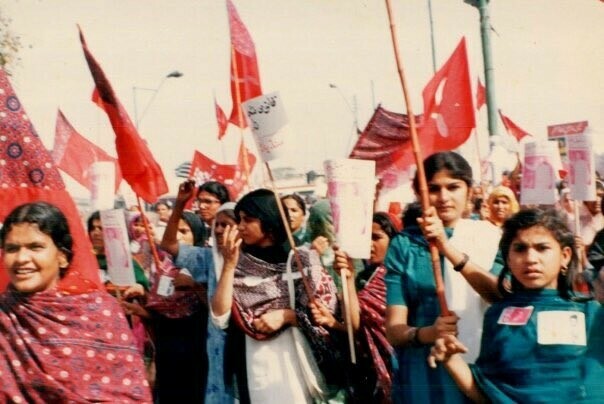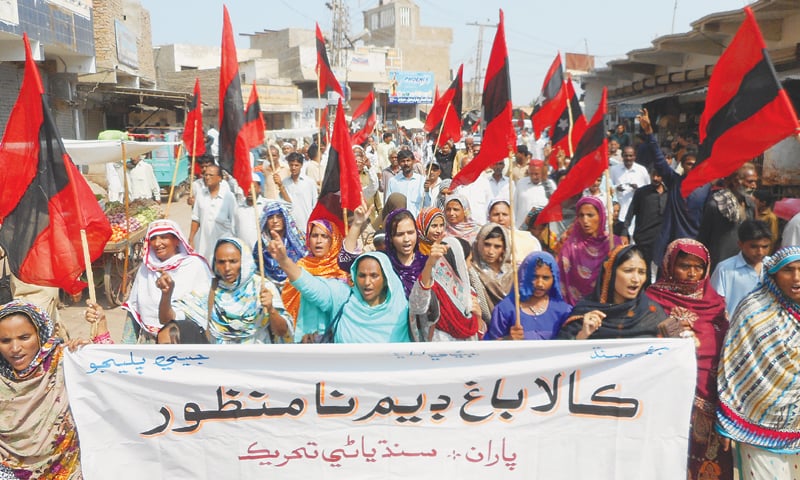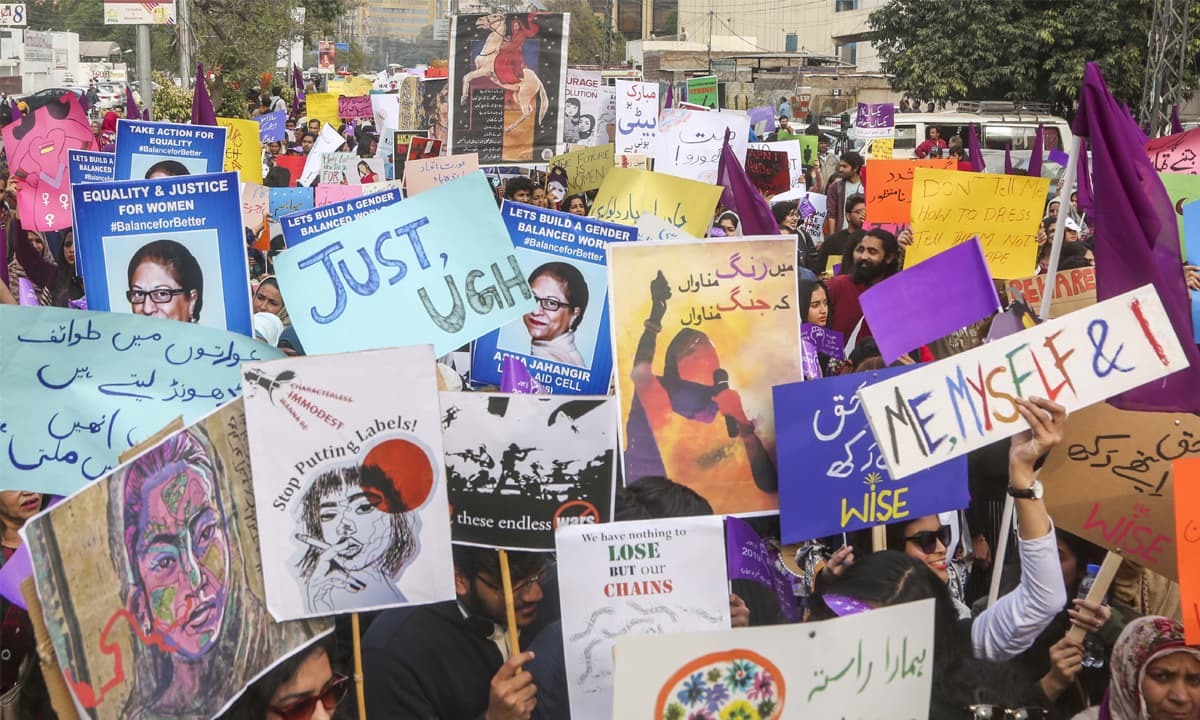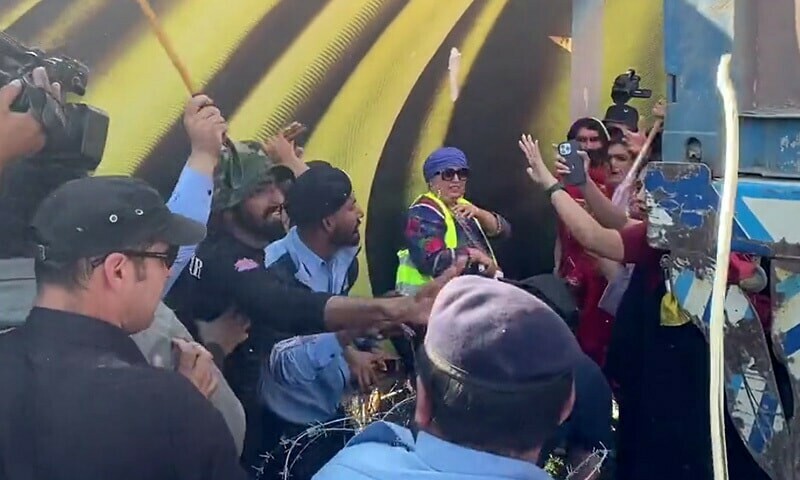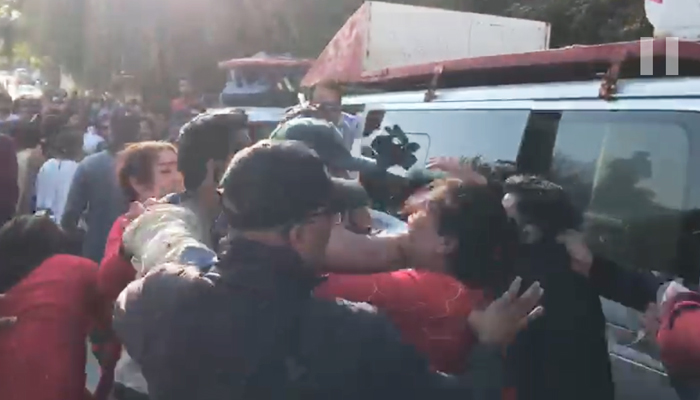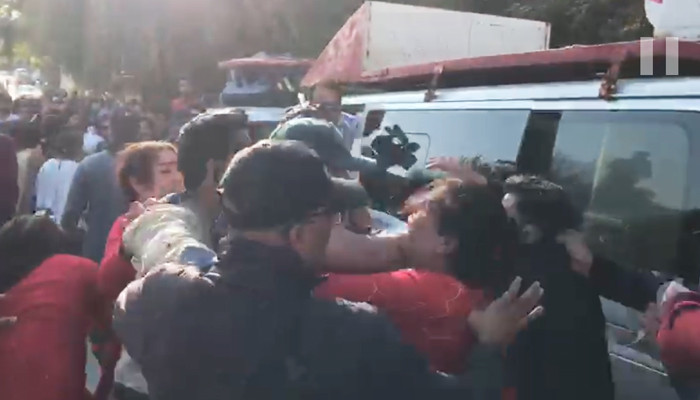,..,.,
On this International Women’s Day, we explore the history of major women-led movements in Pakistan.
Wara Irfan
Women in South Asia have been fighting for their rights for eons. Whether it is by demonstrating resistance to British colonial powers or participating in the struggle for an independent state, women have always given their all. However, despite their countless efforts and achievements, mainstream history books often overlook women’s movements, treating them as a mere afterthought.
On this International Women’s Day,
Images traces the history of major women-led movements in Pakistan that have allowed women in the country to receive an education, go out to work, and even march in the Aurat March today.
As the great literary, feminist and civil rights activist Audre Lorde once said, “I am not free while any woman is unfree, even when her shackles are very different from my own.” The gendered struggle continues to this day.
Years leading up to Pakistan
Prior to the creation of Pakistan, the dominant streams of conflict in the sub-continent focused on forcing the colonial powers out of India and gaining independence. For the pro-Muslim League population, it was important that a decision be made on a separate nation-state comprising Muslim-majority provinces and areas. On the other side were the unionists, who agreed that colonial rulers must leave but India must remain a single entity.
In the foreground emerged one of the early nationalist movements where women played a vital role in the creation of an autonomous state of Pakistan.
Women leaders of the Muslim League are released from Punjab Jail in March 1947. — Courtesy: Lahore Museum Archives
The years 1946-47 saw mass women’s participation in pro-Muslim league demonstrations against unionist governments, such as that of Malik Khizar Hayar Tiwana. Tiwana was the last premier of pre-partitioned Punjab.
Women participated in great numbers in anti-Khizar movements. Similarly, women’s mobilisation in the anti-Khan Sahib Congress ministry demonstrations in the North-West Frontier (now Khyber Pakhtunkhwa) led the British governor of the province to declare upon seeing crowds of burqa-clad women that
“Pakistan is made”.
Pakistan is born
In 1947, when Pakistan came into being, the newly formed country faced one of the biggest refugee crises in the world. Estimates range that more than 10 million people were displaced after Partition.
Fatima Jinnah with her brother, Muhammed Ali Jinnah. — Courtesy: Citizens Archive of Pakistan/File
Fatima Jinnah set up a Women’s Relief Committee (WRF) that catered to refugees coming into Pakistan. Two years later, in 1949, the committee evolved into the All Pakistan Women’s Association (APWA) under Begum Ra’ana Liaquat Ali Khan as its founder.
Working alongside governments
APWA’s focus was on women’s social welfare, including girls’ education, health and income generation opportunities. Being an apolitical organisation, APWA worked with civilian and military governments to achieve its goals, such as building schools, colleges and health facilities for women.
Begum Ra’ana Liaquat Ali Khan. — Photo: Dawn
During APWA’s heyday, the Muslim Family Laws Ordinance (MFLO), 1961 was enacted. It was the first piece of legislation that set procedural limits on men’s rights to divorce their wives and allowed women to have child custody and maintenance rights.
“The MFLO did not come out of the blue,” former chairperson of the National Commission on the Status of Women (NCSW) Khawar Mumtaz told in an earlier interview. “Women, under the banner of United Front for Women’s Rights that included members of APWA, came out to protest the second marriage of then prime minister Mohammed Ali Bogra. They demanded that family laws be codified, and second marriage be banned or at least restricted. That is what led to the formation of a commission headed by Justice Mian Abdur Rasheed which drafted the MFLO.”
During the 60s and 70s, more laws and policies came about, albeit rather dispersed and gradual, but progress was being made. The 1973 Constitution, which was accepted unanimously by parliament, declared that under the law, women were equal to men. This opened gates for women to enter the civil services and join the public and private sectors of the workforce.
Here comes Zia
That moderate progress made was brought to a halt during military dictator Gen Zia ul Haq’s era. Overnight, female announcers and newscasters were ordered to appear on television with their heads covered and in full-sleeved attire. The dictator imposed many sexist policies perpetuating misogyny under the guise of morality. In 1979, the Hudood Ordinances were passed during his ‘Islamisation’ campaign.
As part of the ordinances, the nature of the offence of zina (extra-marital sex) was changed from a crime against the husband to being a crime against the state. It also conflated rape with adultery, therefore systemically oppressing and abusing women victims of sexual assault.
Public floggings became a common sight during General Zia’s reign, especially in its early years — Photo: Dawn / White Star Archives
The repercussions of this draconian legislature showed two years later when the Fehmida and Allah Bux vs The State case was heard. A consenting and married couple was sentenced by the court for adultery under the Hudood Ordinance because the father of Fehmida filed a case of abduction against Allah Bux. The couple should have been penalised for not registering their
nikkah-nama with the Union Council, instead, they were convicted for abduction and adultery. Allah Bux was
sentenced to death by stoning, and Fehmida, then a minor, was awarded 100 stripes in public.
The implication of the case was simple — if a woman decided to marry of her own choice, she could be punished by her family and the state under the law.
Rights aren’t given, they must be taken
This is around the time the
Women Action Front (WAF) or Khawateen Mahaz-e-Amal emerged. It started as a group of women from Karachi who succeeded in getting
7,000 signatures to dismiss the case. Their protests, along with that of other women’s groups, proved to be instrumental and the couple, after a retrial, was acquitted.
Zohra Yusuf, former chairperson Human Rights Commission of Pakistan (HRCP), once narrated to
Dawn the day WAF was created on September 16, 1981 at the home of Aban Marker, a co-founder of Shirkat Gah, when they received the news of the couple being sentenced. “There were about 25 to 30 women at the first meeting. There was a lot of passion, the mood was very angry and we were all determined to do something.”
Anis Haroon, a member of the National Commission for Human Rights and former chairperson NCSW, said, “Unlike the older women of APWA, for us, it was an issue of rights, and not welfare only. We believed that as long as the structure was the same, nothing would change.”
WAF was not afraid to take to the streets and demand women’s rights. They were a political and progressive group of activists that would often get beaten and jailed. They shifted the focus from women’s welfare within the scope of their homes to their political and public emancipation.
The Law of Evidence, introduced under Gen Zia’s military regime, systemically discriminated against women and put hundreds of them behind bars based on false accusations by vindictive ex-spouses and resentful relatives.
On February 12, 1983, a group of 400 women and allies led by WAF and the Pakistan Women Lawyers’ Association (PWLA) was protesting against the Law of Evidence in Lahore when they were attacked with batons by the police, who launched tear gas shells at them.
Sit-in on Hall Road against the law of evidence — Courtesy: LUMS archives
Bushra Aitzaz, a human rights activist, was one of the women who were arrested — Courtesy: Aitzaz Ahsan Archives
The late poet Habib Jalib was also present and inspired the crowd with his poetry of resistance before he was beaten by the police.
Habib Jalib’s fiery address to women protestors on Hall Road. — Courtesy: LUMS archives
This incident highlights the gravity of the violent backlash women’s activism faces, not just from other civilian groups but also from the state.
While in urban areas, women’s movements were being led by the WAF in the 1980s, in rural Sindh, emerged the
Sindhiyani Tehreek (ST), a women’s movement that focused more on the issues of women in rural areas.
The Sindhiyani Tehreek played a crucial role in mobilising rural Sindhi women for the Movement for the Restoration of Democracy — Courtesy: Sarmad Palijo via Twitter
ST was majorly comprised of peasant women from rural Sindh. It called for an end to feudalism and patriarchy, demanded federalism and provincial autonomy and fought to restore democracy in the 80s.
Activists of Sindhyani Tehreek hold a march on the streets of Badin against the Kalabagh dam project. The banner reads: “the Kalabagh Dam is unacceptable” — Photo: Dawn
During General Pervez Musharraf’s era, ST actively protested along with its parent marxist-leninist party, Awami Tehreek against the proposed Kalabagh dam construction.
Welcome to the 21st century
Pakistan welcomed the new century with another military dictatorship. However, this regime was not as harsh and discriminatory to women as the one before it.
Laws like the Women’s Protection Act in 2006 were introduced, which separated rape (zina bil jabr) from adultery/fornication (zina), moved them to the penal code and also made it difficult to abuse the zina provisions.
In 2018, the Aurat March emerged on the scene. The first march was held in Karachi on March 8, International Women’s Day. It demanded radical and progressive changes from the state in relation to the
education, health and safety of marginalised groups.
The first Aurat March took place on March 8 in Karachi. — Photo: Herald/File
This manifestation of the women’s movement was unique in its execution as it did not shy away from talking about bodily autonomy and individual rights like its predecessors did.
“As far as personal rights are concerned, the younger generation has much more confidence and clarity,” Anis Haroon told
Dawn in an earlier interview. “I remember in early WAF discussions for the platform’s charter some members weren’t comfortable with including a line about women having rights over their bodies, although eventually they agreed.”
Due to its unapologetic nature, the Aurat March faces immense
controversy and backlash from both right-wing and religious political parties as well as people who misconstrue its intentions.
Since its first march in 2018, Aurat Marches have been taking place in most major cities across the country to celebrate Women’s Day every year.
Despite threats and intimidation, the Aurat March, much like its feminist predecessors, continues to remain steadfast in its demands for equal rights.

